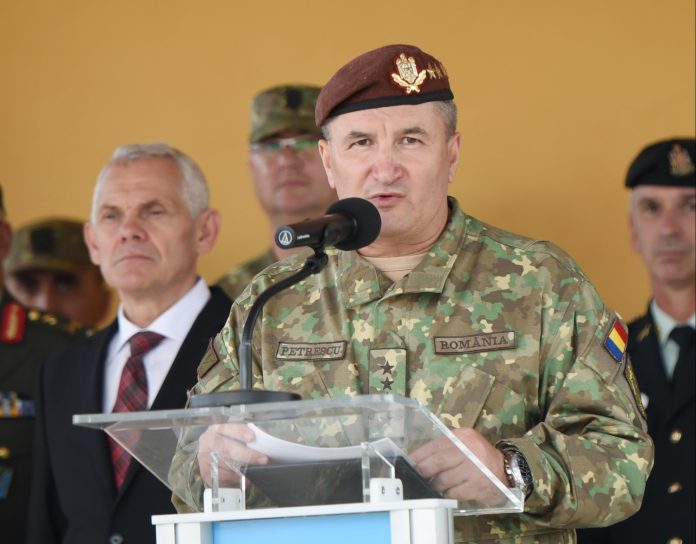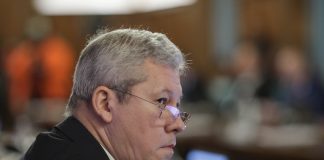Romania’s Chief of the Defence (CoD) Daniel Petrescu said Tuesday that a regress in integration and international co-operation might follow as a result of the war in Ukraine, but the globalisation process will not be stopped, according to Agerpres.
The remarks were made at the international conference „Romanian Military Thinking 2022” that discussed the dynamics of the security architecture in the wider Black Sea area amid the conflict in Ukraine and the new NATO Strategic Concept, organised by the Romanian General Staff of Defence.
„As we speak, we must be conscious of the fact that the war is happening close to our borders, that people are dying and people are dying as we speak. And I need to strongly condemn it; it is an attack that is unprovoked and also illegal: the attack of Russia against Ukraine. I should express our solidarity with the people of Ukraine. This is a war for national survival for Ukraine. This is a war of choice for Russia. But this is also a battle when our values, the values of the West, are tested. It has political, military, economic and all type of implication. At the political level, I would say that we deal with a new political and military framework; this is characterised by more uncertainties and constraint than used to be before this war. Probably, a regress in integration and international co-operation might follow as a result of this war. But, probably, the globalisation process will not be stopped,” he said.
Petrescu expressed his conviction that the processes triggered by this war will be long-term ones.
„The war in Ukraine has already triggered changes in the hierarchy of the European countries’ priorities. We see European countries co-operating more, and we see more willingness on the continent to invest in defence. I think everybody has realised the importance of creating your own capabilities you can rely on in case of a crisis, especially if it is a military crisis. These trends will last in the longer term, regardless of a possible solution to the regional security issues that the Russian Federation is posing,” Petrescu said.
At the same time, he drew attention to the the fact that, although the Russian Federation is under sanctions by the West, there are countries outside Europe that are still co-operating politically and economically with Russia, and keeping economic ties with an autocratic regime causes vulnerabilities.
Petrescu also highlighted a strengthened NATO defence and deterrence posture in the region, saying that there is more cohesion between what’s happening on the northeast flank and the southeast flank.
He added that confidence in Article 5 of the NATO Treaty is at higher levels than ever before in the history of the organisation.
Agerpres




